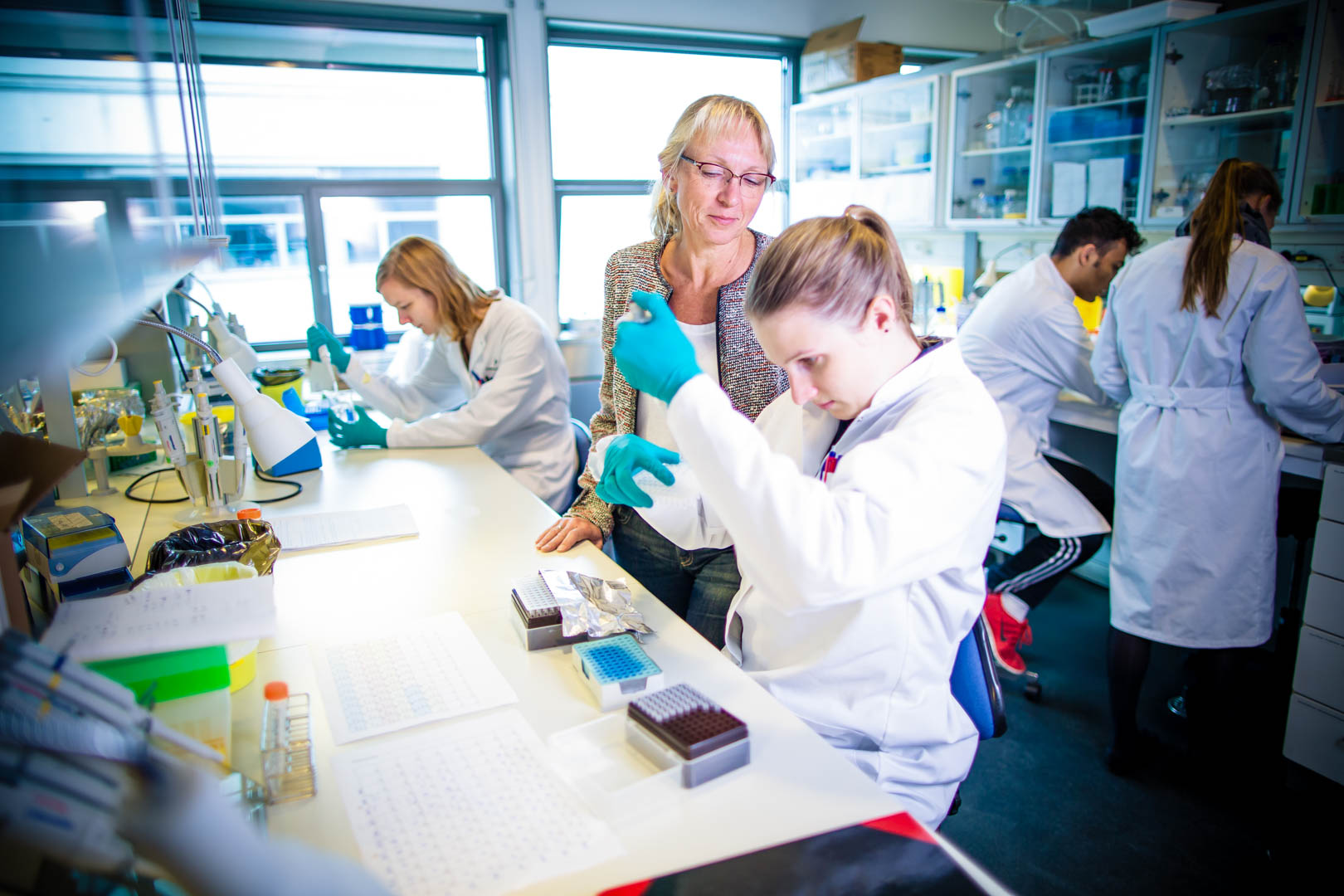All human cells contain the same genomic manual. Different types of cells, however, decode the DNA strands in the manual differently and therefore function very differently. A Danish researcher has now shown that the folding of the DNA strands changes dramatically and rapidly when a stem cell specializes, and that this process appears to play a much more active role in the regulation of gene expression than previously thought.
The genome is the code of life. It comprises long strands of DNA with a simple four-letter code, and the cross-talk between these DNA molecules and their surroundings are the basis of all life on earth. The DNA strands contain all the information required to create an organism, and these strands are the same in all cell types of an organism. It is the precise decoding of the DNA strand that determines how a cell develops and what properties it has.
“We have long known that the gene expression of stem cells changes dramatically when they differentiate into specialized cells. What is new is that we have now shown that the folding of the DNA strands plays an active role in dynamically reprogramming the genome,” explains Susanne Mandrup, Professor, Department of Biochemistry and Molecular Biology, University of Southern Denmark.
Regulating 20,000 genes
Stem cells differentiate by upregulating and downregulating specific genes, thereby adjusting the functioning of the cell such that it can develop into a specialized cell, for example into a fat cell that is specialized in storing lots of fat in our fat tissue. The researchers used pre-fat cells from mice to examine how the folding of the DNA strands is affected when these cells develop into fat cells.
The cells were cultured and stimulated to differentiate into fat cells in vitro. Using a novel technology called promoter-capture Hi-C, the researchers measured how all the nearly 20,000 genes in the genome interacted with other areas in the genome during this development. They also measured where gene-regulating proteins bind to the genome and which parts of the genome is expressed.
“Using new technologies, we can monitor how the three-dimensional structure of the genome changes as the fat cells develop and correlate this with expression of genes. We use fat cell development as a model system to provide general information about the role of genome folding in regulating gene expression at a genome-wide level.”
Switching on and off in 3D
The new study shows that the folding of the DNA strands plays a much more important and dynamic role in regulating gene expression than was previously thought. Already 4 hours after the cells are stimulated to become fat cells, the genome is extensively reorganized.
“Enhancers are areas of the genome that bind specific activating proteins that regulate the expression of the genes. These enhancers can be far away on the DNA strands from the genes they regulate. However, the promoters of the genes, i.e. the sites in the genome at which the decoding of the genes begins, are contacted by the enhancers by looping of the DNA strand. The enhancers can thereby activate or repress the expression of specific genes. Our study has now shown that this pairing between enhancers and promoters is much more dynamic than previously thought.”
In addition to showing that these interactions are very dynamic, the researchers also discovered that specific proteins called co-repressors, which had previously been thought to solely be involved in switching off genes, also seem to play a role in the activation of genes during preadipocyte-to-adipocyte development.

Major significance for further research
The protein-coding genes account for only about 1.5% of the approximately 3 billion base pairs in the human genome. The function of the remaining 98.5% of the genome remains largely unknown. Much of the genome – perhaps 20–40% – is thought to be involved in the regulation of the expression of genes.
“I have always been fascinated with how all human cells can contain the same genome with the same genes even though the cells function very differently in the body. To understand this, we need to know how specific gene programmes are switched on and off. This new study provides a completely new perspective on how this is regulated.”
This new insight does not contribute directly to the understanding of any specific disease. Rather, it provides basic insight into and the possibility to influence the regulation of gene expression in human cells. It may therefore contribute to the general understanding of diseases and may influence many future studies of diseases such as cancer and type 2 diabetes.
“Dynamic rewiring of promoter-anchored chromation loops during adipocyte differentiation” has been published in Molecular Cell. The Novo Nordisk Foundation awarded the Novo Nordisk Foundation Lecture 2017 to Susanne Mandrup, and she gave the Lecture on 19 May 2017. In 2015, the Foundation awarded Susanne Mandrup a Novo Nordisk Foundation Advanced Grant for the project Uncovering the Molecular Basis for Nutritional Reprogramming of the Endocrine Pancreas using Novel In Situ and Genome-wide Approaches. In addition, the Danish National Research Foundation recently awarded her a grant of DKK 65 million to establish the new Center for Functional Genomics and Tissue Plasticity (ATLAS) at the University of Southern Denmark.
